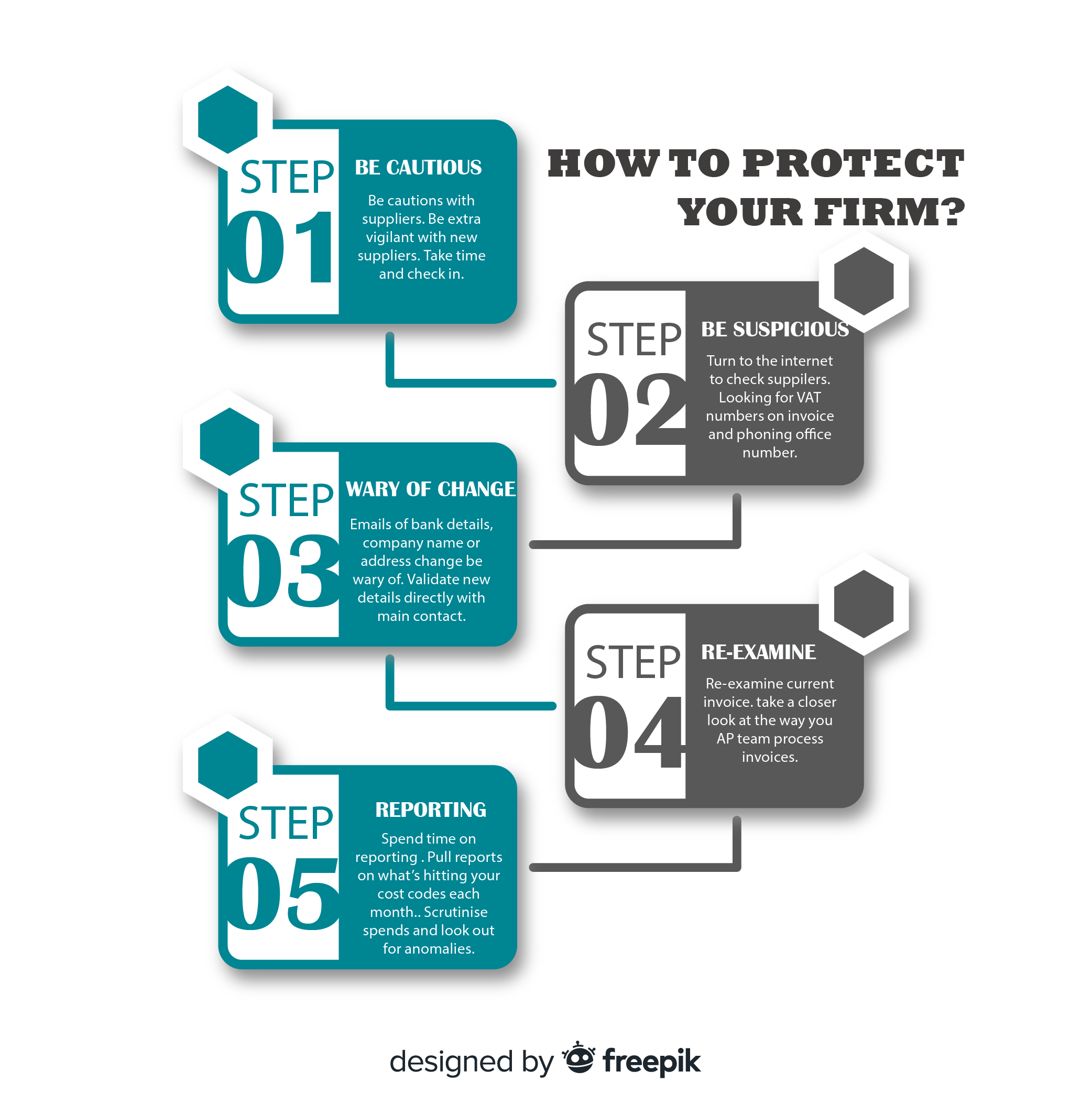In this day and age, it’s no surprise that invoice fraud is on the rise. Cyber criminals around the world are forever coming up with new and inventive ways to fiddle businesses out of their hard-earned cash. The Institute of Directors recently announced that three quarters (72%) of UK businesses have received bogus invoices – a staggeringly high figure indicative of the sheer scale of invoice fraud today.
We’re facing a surge that could very well have started with the European Patent Office scam in 2014. Companies across the UK were receiving invoices requesting payment for patents and applications purportedly from the EPO. The invoices looked exactly like the real thing, except the banking details were different – and it wasn’t sent by the EPO.
Another trick we’ve seen is where companies are sent invoices for directory listings, advertising, domain name renewals or office supplies that they did not order. The supplier may or may not exist and you may or may not receive the items on the invoice – the point is that these fraudsters deceive companies by disguising order forms as invoices and taking advantage of employees who don’t know that the goods weren’t legitimately ordered in the first place.
Changing bank details is another fraudster favourite. The BBC recently reported that over 5,000 people had been scammed last year after being fooled by emails asking them to divert their regular payments into criminals’ accounts. On a personal scale, the scam totalled £126 million, but it’s easy to see how such deception could be extrapolated for UK businesses, especially those without proper invoice and payment processes in place to detect suspicious activity.
Many large businesses have such safeguards in place to protect against invoice fraud. Automated invoice management software weeds out any threat by establishing consistent workflows and triggers. Yet it’s the UK’s backbone – small to medium-sized businesses (SMBs) – that run the greatest risk. Most still rely on paper-based processes and spreadsheets to stay on top of their complex supplier invoice admin. And it’s costing them dearly. One report by Tungsten Network found that SMBs alone lose a whopping £9 billion to invoice fraud every year.
It’s no wonder the UK government established the Action Fraud hotline and online portal to help stamp UK fraud out – or at least cut it down.
So what can you do to protect your firm?
Here are five practical tips to protect you from invoice fraud:
Be cautious with new suppliers
If you haven’t worked with the company before and they’re not on your books, be extra vigilant. Take the time to check in with the person who ordered the goods – it’s a small extra step that can save you big in the long run.
Be curiously suspicious
Turn sleuth and Google the supplier to check if they’re a legitimate business. Are they registered on quality assurance websites like Checkatrade and TrustATrader? A simple step like looking for a VAT number on the invoice and phoning the office number to see if it checks out is always a good idea.
Be wary of a change in the process
Anytime a supplier emails you to notify of a change in banking details, company name or even address, reach out to the person in your organisation who ordered the goods or services, and together, validate the new details directly with the main contact at the supplier.
Re-examine current invoice processes
Take a closer look at the way your accounts payable (AP) team process invoices today. Are there opportunities to move some fallible, paper and spreadsheet-based steps to a more simplistic, automated model? If you’re not sure how or what that entails, see how Concur’s cloud-based solution works.
Spend time on reporting
Carve out time to pull reports on what’s hitting your cost codes each month. Scrutinise what’s being spent and where and be on the lookout for anomalies. Are there any big ticket items that stand out or are you spending more in one category than normal? If you’re using an automated solution, you’ll be able to run these reports quickly and frequently. It’ll also be easy to spot trends and pick out discrepancies.

Take a look at our latest whitepaper, AP Automation: The End of the Supplier Merry-Go-Round, to see the other risks, including fraud, facing businesses that rely on purely manual processes to handle their supplier invoices.
 Robert Anderson
Robert Anderson
Channel Partner Account Manager
SAP Concur UK&I
Email: robert.anderson01@sap.com
